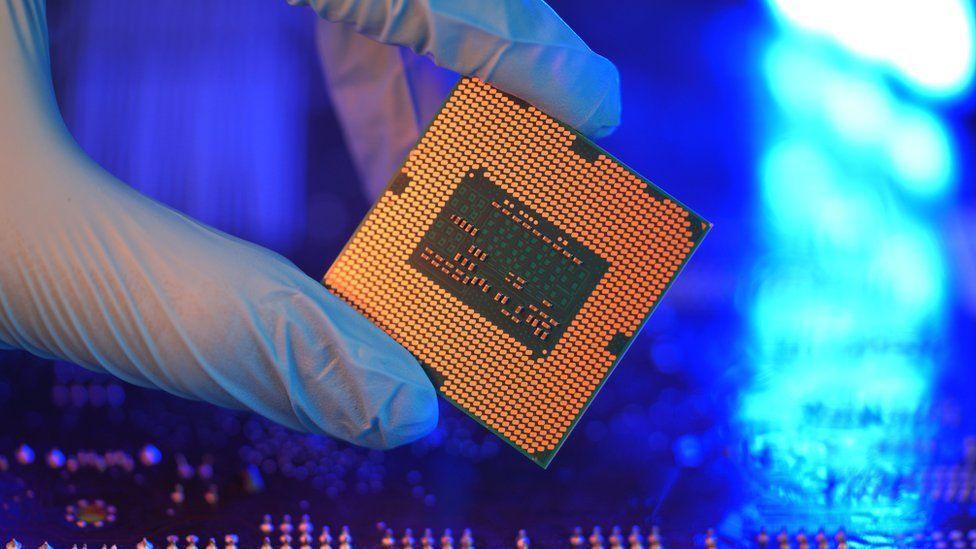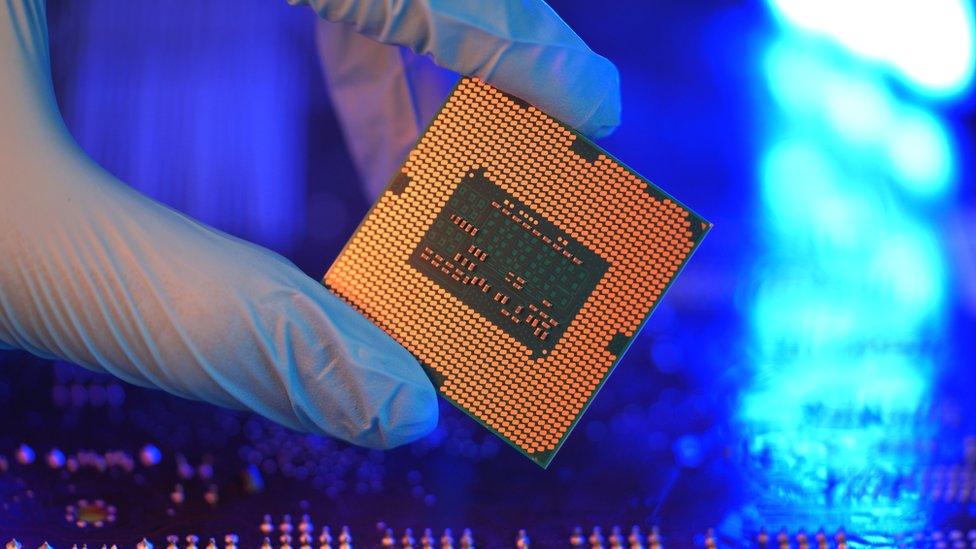US-China chip restrictions ‘could hit Irish exports’

China accounts for almost 70% of all exports of semiconductors from Ireland
At a glance
Ireland’s Central Bank has suggested US restrictions on selling high-end computer chips to China could be partially responsible for a slowdown in Irish exports.
The value of Irish exports fell by €3bn in the first half of this year compared to the same period in 2022.
Most of the reduction was due to reduced exports of vaccines and semiconductors.
In October last year, the Biden administration announced restrictions on exports to China of advanced integrated circuits, semiconductor manufacturing equipment and related software and technology.
- Published
US restrictions on selling high-end computer chips to China could be partially responsible for a slowdown in Irish exports, Ireland’s Central Bank has suggested.
The value of Irish exports fell by €3bn in the first half of this year compared to the same period in 2022.
Most of the reduction was due to reduced exports of vaccines and semiconductors.
China accounts for almost 70% of all exports of semiconductors from Ireland and the drop in the first half of the year was due mainly to a reduction in sales to that market.
In October last year, the Biden administration announced restrictions on exports to China of advanced integrated circuits, semiconductor manufacturing equipment and related software and technology.
The restrictions apply to any company worldwide that uses US semiconductor technology in its production processes
The Central Bank analysis said: "It is not possible to determine from publicly available information whether the export controls have affected exports of semiconductors from Ireland.
"However, since US-owned multinational enterprises account for a significant share of exports from this sector in Ireland, it is possible that the restrictions are playing a role in the weakness in Ireland-China ICT goods exports to date in 2023."

The value of Irish exports fell by €3bn in the first half of this year compared to the same period in 2022
It suggested other factors could include the general slowdown in the Chinese economy and demand changes for specific products within the technology sector.
The reduction in vaccine sales accounts for the major part of the fall in exports.
The Central Bank said the explanation for this was more straightforward: "As the pandemic has eased and global supply chain conditions improved, a run down of accumulated stocks and a return to more normal production levels are likely to explain a significant part of the decline in pharma exports in the first half of 2023 compared to 2022."
The analysis said that sales in both sectors could bounce back but cautions that the decline in trade in the first half of 2023 is "a reminder of the wider risks to the Irish economy from the concentration of exports in a small number of highly globalised, multinational-dominated sectors."
It concluded: "This characteristic of the economy leaves it exposed in the event of a downturn in global demand, industry or firm-specific structural changes or an acceleration of geo-economic fragmentation."
Related topics
- Published7 October 2022

- Published4 July 2023
